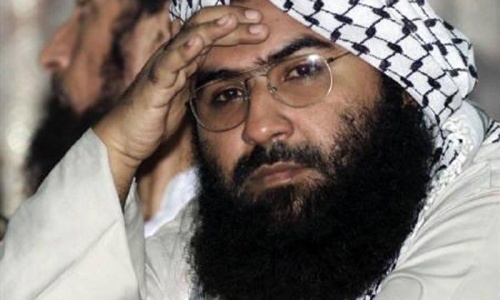WASHINGTON: There’s no role for militancy in policy-making and non-state actors cannot be allowed to operate from the Pakistani territory, says a parliamentary delegation from Pakistan, which completed its five-day visit to the US capital on Saturday.
In a briefing to Pakistani, and later an Indian, journalists at the end of their visit, the prime minister’s special envoys on Kashmir also said that the United States was doing “positive pushing and prodding” for reducing tensions between India and Pakistan.
Senator Mushahid Hussain Syed, one of the two envoys sent to the United States to present Pakistan’s case on Kashmir, said that they would not be surprised if Indian Prime Minister Narendra Modi finally came to Islamabad to attend the Saarc summit “and embrace Prime Minister Nawaz Sharif”.
“There is no alternative for talks. And this is a message that the Americans are also sending to both India and Pakistan,” said the other envoy, MNA Shezra Mansab Ali, while explaining why she believed India and Pakistan would soon engage one another for reducing tensions.
A Pakistani media report that the civilian government sent a blunt message to the country’s military leadership last week, saying that Pakistan would be completely isolated if it did not stop cross-border militant attacks, also echoed at the briefing.
Senator Syed said that there was complete consensus on this issue in parliament, where all parties have jointly drafted a 22-point resolution, asking the government to end militancy. “There is no role for militancy in policy- making and non-state actors cannot be allowed to operate from the Pakistani territory,” he said
The militancy, particularly cross-border attacks, was an issue that the delegation had to confront at almost each of more than a dozen meetings it attended in Washington.
Since Sept 18, when militants attacked a military facility in Uri and killed at least 18 Indian soldiers, the US State Department, the White House and the Pentagon have almost daily spoken about the situation in held Kashmir and the consequent tensions between India and Pakistan.
In these statements, US officials regularly mentioned the Uri attack, calling it an act of “cross-border terrorism” and urging Pakistan to stop these attacks.
US officials and think tank experts also raised this issue with the Pakistani parliamentary delegation, reminding it of the need to end cross-border attacks if Pakistan wants its stance on Kashmir to be heard.
Uprising sidelined by Uri attack
In the US media, the Uri attack sidelined whatever sympathy the uprising in India-held Kashmir had attracted. In the initial days of the uprising, major US media outlets condemned Indian atrocities against civilians and stressed the need for resolving the Kashmir dispute. But after the attack, the coverage shifted to militancy, with some reports clearly blaming Pakistan for allowing militants to use its territory.
Pakistan faced a similar isolation at the UN General Assembly in New York last month where the prime minister forcefully raised the Kashmir issue but failed to gain as much sympathy as he would have, had there been no militant attack.
The State Department issued a statement after the prime minister’s meeting with US Secretary of State John Kerry, saying that the top US diplomat “reiterated the need for Pakistan to prevent all terrorists from using Pakistani territory as safe havens”.
UN missions of other world powers, including Britain and France, also issued similar statements.
Diplomatic sources in Washington say that the prime minister’s envoys have noticed the damage the militancy has done to Pakistan’s image in general, and to the Kashmir cause in particular, and it is likely to figure prominently in their assessment of the current mood in Washington.
At their media briefing, the two Pakistani envoys, however, said that they did notice a strong desire in Washington to help defuse the current tensions between India and Pakistan. Americans see Pakistan as an important ally and want to retain strong ties with this country, they added.
Senator Mushahid Hussain hoped that the new US administration would be different from the Obama administration, “which hopefully would have more balanced, strategic, sustained and consistent policy”.
Published in Dawn, October 9th, 2016











































